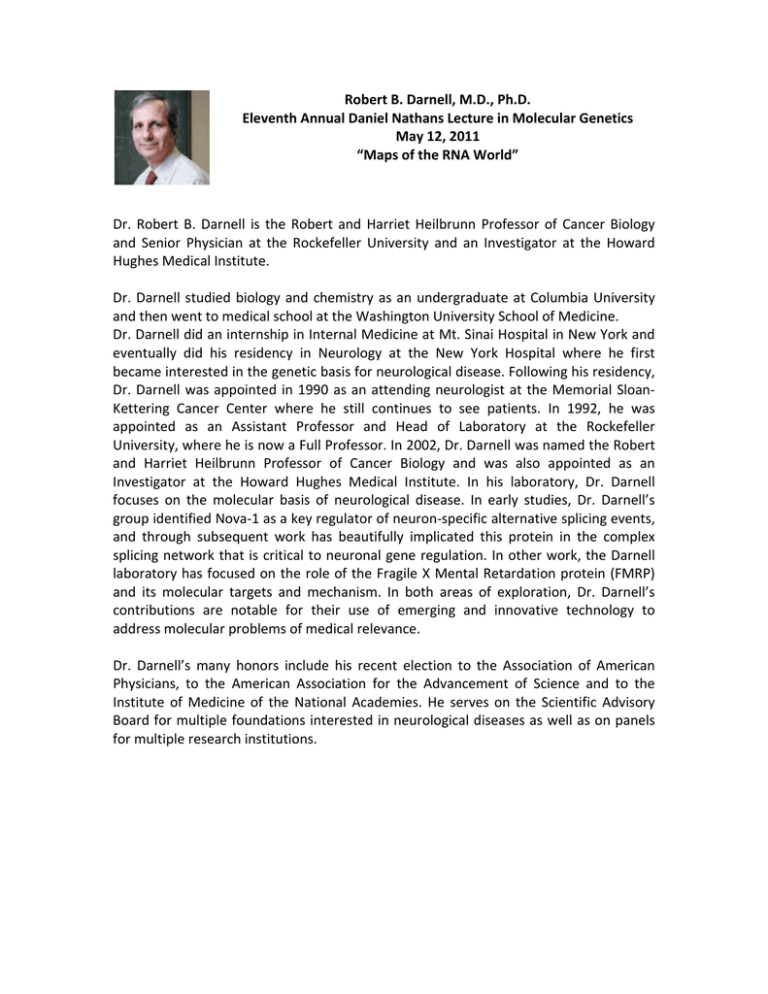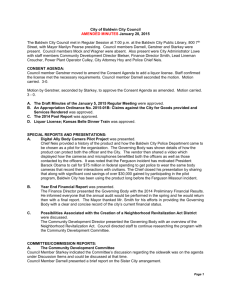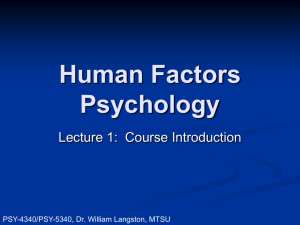Robert B. Darnell, M.D., Ph.D. Eleventh Annual Daniel Nathans Lecture in Molecular Genetics May 12, 2011
advertisement

Robert B. Darnell, M.D., Ph.D. Eleventh Annual Daniel Nathans Lecture in Molecular Genetics May 12, 2011 “Maps of the RNA World” Dr. Robert B. Darnell is the Robert and Harriet Heilbrunn Professor of Cancer Biology and Senior Physician at the Rockefeller University and an Investigator at the Howard Hughes Medical Institute. Dr. Darnell studied biology and chemistry as an undergraduate at Columbia University and then went to medical school at the Washington University School of Medicine. Dr. Darnell did an internship in Internal Medicine at Mt. Sinai Hospital in New York and eventually did his residency in Neurology at the New York Hospital where he first became interested in the genetic basis for neurological disease. Following his residency, Dr. Darnell was appointed in 1990 as an attending neurologist at the Memorial Sloan‐ Kettering Cancer Center where he still continues to see patients. In 1992, he was appointed as an Assistant Professor and Head of Laboratory at the Rockefeller University, where he is now a Full Professor. In 2002, Dr. Darnell was named the Robert and Harriet Heilbrunn Professor of Cancer Biology and was also appointed as an Investigator at the Howard Hughes Medical Institute. In his laboratory, Dr. Darnell focuses on the molecular basis of neurological disease. In early studies, Dr. Darnell’s group identified Nova‐1 as a key regulator of neuron‐specific alternative splicing events, and through subsequent work has beautifully implicated this protein in the complex splicing network that is critical to neuronal gene regulation. In other work, the Darnell laboratory has focused on the role of the Fragile X Mental Retardation protein (FMRP) and its molecular targets and mechanism. In both areas of exploration, Dr. Darnell’s contributions are notable for their use of emerging and innovative technology to address molecular problems of medical relevance. Dr. Darnell’s many honors include his recent election to the Association of American Physicians, to the American Association for the Advancement of Science and to the Institute of Medicine of the National Academies. He serves on the Scientific Advisory Board for multiple foundations interested in neurological diseases as well as on panels for multiple research institutions.




